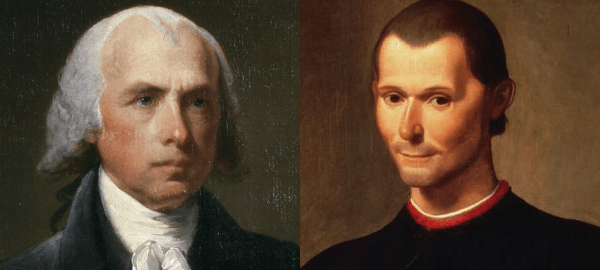Having been born in 1953, World War II was still fresh in the memory of most. The aftermath had brought us face to face with the threat of communism, the Korean War, Russia, Communist China, and the Cuban Missile Crisis. Practicing “duck and cover” drills are still fresh in my mind. Students even had to walk home one day, timing ourselves. The purpose was to see if we could walk home and acquire cover prior to a nuclear blast. Even in our naive youthfulness, we were coming to understand that the threat was real, and should it happen, — we would be on our own. Some of it seems somewhat humorous now, as getting under a desk might have made us feel better, but it was not going to protect us from what was coming, let alone the accompanying radioactive fallout. There was a benefit to those seemingly dark times. We relished our freedom and liberty. Freedom and liberty were a stark contrast from those who threatened us. Tradition was important. Honoring those that had given so much, and those who had given all mattered. Though there was this constant external threat, there was a sense of security and purpose. After all, there was still a “real” John Wayne in many families who had fought in the Great War. The last war fought where the intent was total and complete defeat of the enemy.
A quote by James Madison may crystalize the reason for that feeling of wellbeing experienced during that time. James Madison said, “To suppose that any form of government will secure liberty or happiness without any virtue in the people, is a chimerical idea.” “Chimerical” meaning “unchecked imagination, fantastically visionary, improbable”. The “virtue” of our parents, grandparents, neighbors, and local community was a collective shield against those with bad intent, internally and externally. It was a time where one could ride a bike a mile every day to the local public pool, spend all day swimming with friends, and head home in the late afternoon. All the while, the doors to your home were left unlocked, void of concern that anyone would come into your home and take something that was not theirs, or do you harm.
Do not misunderstand, — life was not easy. People and families still struggled, but there was a certain joy in that hardship. There was a growing and thriving middle class. They took pride in their hard fought victories. Industries and businesses grew and flourished introducing new and innovative products making everyone’s life better. It brings to mind another Madison quote, “The class of citizens who provide at once their own food and their own raiment may be viewed as the most truly independent and happy”.
There was change on the way, however. I still remember my dad arguing with a close friend about President Lyndon Johnson’s “Great Society” initiatives and his “War on Poverty”. It matters not who was on which side of the issue. What began as a friendly game of cards ended with strife, and a friendship that was never the same. Since that time and the beginning of the “War on Poverty”, we have had the “Vietnam War”, the “War on Drugs”, the “War on Terrorism”, the “Gulf War I”, the “Gulf War II”, conflicts that never seem to end —— not to mention the various “policing actions” we have been involved in around the world. They are almost too numerous to mention: Lebanon; Grenada; Panama; Kosovo; Somalia; and now there is talk of getting involved in the Ukrainian unrest. It brings to mind another Madison quote, “No nation could preserve its freedom in the midst of continual warfare”. Tie that in with a recent quote by Rahm Emanuel, former White House Chief of Staff to President Obama, “Never let a good crisis go to waste”. The context of Mr. Emanuel’s quote is that a crisis allows you to do things you would otherwise not do. (https://answers.yahoo.com/question/index?qid=20120915063154AAxfHGD)
What has been the results of these various “Wars”? Trillions of tax dollars spent to end poverty, yet — it remains, along with huge deficits. We have the new and aggressive “Civil Forfeiture Laws”. Carry, deposit, or withdraw too much cash, and it can be seized without cause. There is even talk about the elimination of “cash”. Can we call this the “War on Cash”? This is a subject all to itself, as it is the obliteration of our privacy, right to be secure in our papers and affairs, and a confiscation of personal property. We have the compilation of personal correspondence by the NSA. There is the National Defense Authorization Act that states that American citizens can be detained without due process. Lastly, we have the militarization of our police force, and in some cases, the call to federalize local police. What did Madison have to say about such actions? “It is a universal truth that the loss of liberty at home is to be charged to the provisions against danger, real or pretended, from abroad”.
Is it any wonder that many Americans are growing uneasy? In the face of this, our boarders remain open. Legal immigrants, refugees, and illegal immigrants coming here are not required to adapt to the American Culture, but are cloistered together where they can retain their own language and culture. In some places, there is a push for their own laws and courts, as in the case of Muslim Sharia Law. We have forgotten the “Naturalization” part of the Department of Immigration and Naturalization. No, — “tolerance” and “multiculturalism” are the new mantras. Is this by design?
Early in the 20th century, communists in this country were referred to as “anarchists”. I personally found the term most curious. They believed in the overthrow of the state, the abolition of capitalism and private property, favored common ownership of the means of production, direct democracy, and — “from each according to his ability, to each according to his needs” (quote from Louis Blanc 1851, later popularized by Karl Marx). (http://en.wikipedia.org/wiki/Anarchist_communism) The question is, “How can Anarchist Communism be introduced into a well ordered, freedom loving culture, governed by the Rule of Law — of a virtuous people?” The answer may lie in the constructs of Niccolo Machiavelli.
If one can suppress the virtuous values of a people, anything and everything is permitted. The following are just a few quotes from Machiavelli in reference to a few relevant subjects. Quotes were taken from an article by Bill Federer titled “If There is No God, Everything is Permitted“. (http://www.wnd.com/2015/05/if-there-is-no-god-everything-is-permitted/)
Subject – Politics: “Politics have no relation to morals.” “The promise given was a necessity of the past: the word broken is a necessity of the present.”
Subject – Maleficent Counsel: “No enterprise is more likely to succeed than one concealed from the enemy until it is ripe for execution.”
Subject – Change: “I’m not interested in preserving the status quo; I want to overthrow it.” “Whosoever desires constant success must change his conduct with the times.”
Subject – Baleful Remarks: “It is much more secure to be feared than to be loved.” “Men shrink less from offending one who inspires love than one who inspires fear.” “Whoever conquers a free town and does not demolish it commits a great error and may expect himself to be ruined.”
As I read Machiavelli’s quotes, they seem relevant today as anything and everything is permitted in the world of growing “tolerance” and “multiculturalism”. “The ends justify the means” philosophy is in stark contrast to those of Madison and his fellow framers of the Constitution. In a pure democracy advocated by the Anarchist Communist the common good is primary, and the rights of the individual to be free are lost. The question is, “Do you feel safe and secure under a system governed by the rule of well-defined laws that protect the individual, your property, and personal freedom, or — a philosophy of anything and everything is permitted, as suits the common good, to be determined by the masses in a pure democracy, dependent on what the majority feels are the needs and threats of the day?” Which philosophy will bring peaceful co-existence, and which will bring conflict? The last quote by Madison speaks to the need for constant vigilance. “I believe there are more instances of the abridgment of freedom of the people by gradual and silent encroachments by those in power than by violent and sudden usurpations.” Protect your liberty. Please stay vigilant.



